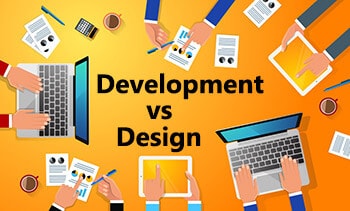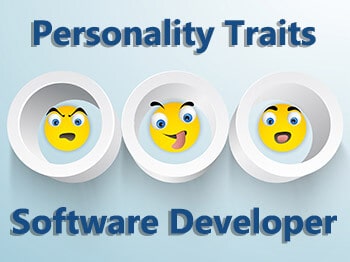Do You Have to Be Good at Math to Be a Programmer?

To become a programmer, people often want to know whether they need to be good at math. The simple answer is that having good math skills are not required, but it would offer many benefits.
Learning a new programming language can be challenging, especially when you do not have the necessary skills to grasp basic programming concepts. In many cases, math is one of these necessary skills.
Programming can involve complex equations and formulas requiring knowledge of algebra, trigonometry, or calculus. There are also times when basic arithmetic is all that you need.
How Important Is Math for Programming?
Programming is a component of computer science, which grew out of mathematics. The first computers were simply computation devices.
As computers and technology advanced, mathematical theories were developed to support new computational models. While this makes math and programming intertwined, math is not always needed for programming.
Math is typically considered a necessary topic for those that want to excel in the programming field. However, math is more useful for some programming languages and environments compared to others.
To create a basic website with HTML, CSS, PHP, and JavaScript, you are not dealing with complex equations and formulas. When developing video games, you may need to understand trigonometry, polar coordinates, and differentials.
While advanced mathematics is needed for 3D computing, there are very few real-world situations that will require these skills for programming.
Basically, math is not a requirement to become a successful programmer. Ninety-five percent of programming involves if/else statements, logical reasoning, and basic object manipulation using the syntax of the programming language. However, you may need to take advanced math classes while earning a computer science degree.
What Type of Math Is Used in Programming?
While math is not needed for every programming language, the following areas of basic and advanced math are needed in certain fields:
- Basic arithmetic
- Algebra
- Calculus
- Geometry
- Logic
- Number theory
- Discrete mathematics
Keep in mind that these math skills are not needed in every programming field. Web development does not typically involve the same need for advanced computation used in video game development, operating system design, or security and cryptography.
To get started in programming, you need to know basic arithmetic. You should know how to add, subtract, divide, and multiply. If you constantly rely on a calculator for these basic operations, you may not type code very quickly.
Beyond basic arithmetic, the advanced topics are not a necessity unless required by the specific programming environment. The following are programming fields that are most likely to require a higher level of math skills:
- 3D video game development
- 2D physics for computer games
- Cryptography and security
Trigonometry and linear algebra are useful when dealing with matrices for 3D graphics. When working with 2D or 3D physics in a video game, knowledge of physics formulas and equations are beneficial. For cryptography, algorithm analysis is needed.
While these math skills are required for these fields, there are also software libraries and game engines that handle the computations for you. Advanced math skills may be needed to seek employment in these fields, but is not a requirement for the actual process of programming.
Video Game Development Requires the Most Math

Video game development and 3D programming often require significant knowledge of computational geometry, differential equations, and trigonometry, unless you depend on graphics libraries.
Earning a degree also requires a lot of math. Programmers frequently start their education with a computer science degree, which requires a variety of math classes.
Students typically need to take classes in the analysis of algorithms, which requires several prerequisite math skills, such as:
- Number theory
- Basic set theories
- Logarithms
- Basic calculus
- Discrete mathematics
No matter the field, when you enter college to work toward a career in programming, you will likely need to meet certain math requirements. During the first two years, students often take algebra, statistics courses, and analysis courses.
Some schools require additional courses depending on the area of specialization. When studying for computer graphics, geometry, and discrete mathematics are needed.
There are also other advanced specialties that combine the need for programming skills and advanced mathematics. For example, engineers at NASA often need to learn programming and high-level math for working with advanced technical equipment.
Web Developers Rarely Require Exceptional Math Skills
Web developers do not deal with math regularly, other than basic arithmetic. When designing the user interface for a web app or website, you may need to use simple addition and subtraction to plan the placement of elements on the screen.
Math is not considered an essential skill for web development. CSS, HTML, JavaScript, and other languages that are commonly used for the frontend or backend of website development rarely require anything beyond basic addition and subtraction.
There are many successful programmers at the tops of their fields that are not afraid to admit that they are horrible at math.
How Do You Know What Type of Math You Need?
While math is rarely a requirement for programming, there are two specific situations where it becomes necessary. You may need math as part of a requirement for a college degree or a job application.
When taking programming classes at a university or college, the course curriculum should include a list of prerequisites. Besides prerequisite courses, you may find a list of necessary skills, including various math topics.
When applying for a job as a programmer, the job description may mention recommended math skills. These skills can make a difference when an employer needs to choose between two equally matched candidates.
What Other Skills Should Programmers Learn?

If math is not a requirement for programming, what skills should you try to learn? Depending on the field, literacy and design are often important skills for successful programmers.
Web developers and designers need to understand the basics of design to craft user-friendly interfaces. User experience (UX) designers also require design skills to ensure that they meet the needs of the users.
Literacy skills are beneficial for most types of programming, as it allows you to write code that is easier for other developers to understand. When working in a team setting, you need to ensure that your coworkers understand the meaning behind each line of code.
The one skill that is needed for all types of programming is problem solving. Experienced programmers have above average problem-solving skills, as most coding involves finding ways to produce a specific result.
Benefits of Improving Your Math Skills for Programming
While math is not needed in all aspects of programming, it offers a foundation for solving problems logically. Most experienced programmers will tell you that the math classes that they took in college improved their programming skills.
Solving complex equations helps to increase your ability to visualize abstract concepts. This abstraction is also an important part of programming.
When you write code, you often need to visualize the outcome in your head, much like solving a math operation. Without these visualization skills, programming becomes a much more challenging task.
Besides visualizing the code, you need to think logically. Logical thinking is a standard part of solving math problems. As a lot of programming involves problem solving, developing stronger logical skills allows you to write code faster and more efficiently.
Someone without logical thinking or problem-solving skills could likely still learn to program. However, they are also more likely to face problems that they cannot easily solve, resulting in slower work.
Math is beneficial for programming. At the same time, programming skills can be beneficial for your math skills. The benefits of improved logical reasoning, problem-solving, and visualization can be learned first through programming and then applied to math.
There is a reason why more elementary schools are encouraging children to learn to code. Programming provides an alternative method for increasing the skills needed to become good at math.
If children can learn to program without learning algebra and calculus, or even long division, an adult should not need these skills to become a programmer.
Conclusion – Do You Need Math for Programming?
There are several benefits of having good math skills if you want to be a successful programmer. It helps to improve your logical reasoning, visualization skills, and problem-solving skills. However, advanced math is rarely a requirement to become employed as a programmer.
There are two main reasons to improve your math skills as part of your goal to become a programmer – specialization or college.
When you specialize in video game development, cryptography, or 3D computing, you will regularly use trigonometry, discrete mathematics, and differential equations. Outside of these specializations, you only need to grasp basic arithmetic.
Colleges may also require you to take additional math classes as part of a computer science degree, which is the most common degree for those that want to become programmers.
In the end, good math is not a necessity for programmers. If you are worried about your math skills, consider the type of programming that you want to do.
If you can add two plus two, you can build a website or design a mobile app. To create a 3D game or security applications, advanced math should be part of your education.







